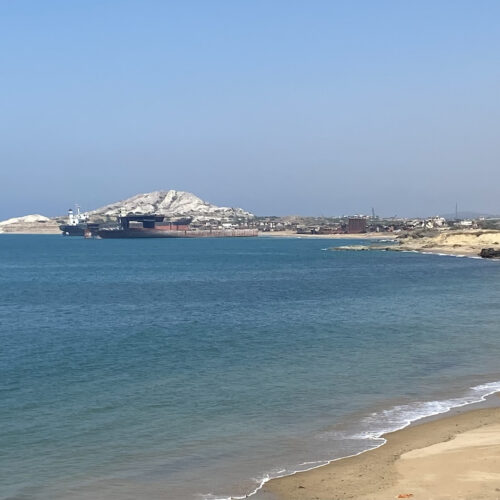Press Release – Platform publishes list of ships dismantled worldwide in 2021
The vast majority of ships continue to be broken under conditions that pollute and expose workers to immense risk
According to new data released today by the NGO Shipbreaking Platform, 763 ocean-going commercial ships and floating offshore units were sold to the scrap yards in 2021. Of these, 583 of the largest tankers, bulkers, floating platforms, cargo- and passenger ships ended up on the beaches of Bangladesh, India and Pakistan, amounting to near the totality of the gross tonnage dismantled globally.

In South Asia, workers – often exploited migrants, some of them children – are exposed to immense risks. Dangerous working conditions, including fires and falling steel plates, kill or seriously injure numerous workers. Many more are sickened by exposure to toxic fumes and substances that can be found within the ships’ structures. Coastal biomes, and the local communities depending on them, are devastated by toxic spills and air pollution due to the lack of infrastructure to contain, properly manage and dispose of hazardous materials.
In 2021, at least 14 workers lost their lives when breaking apart vessels on the beach of Chattogram, Bangladesh, and another 34 were severely injured. Local sources also reported two deaths in Alang, India, and two deaths in Gadani, Pakistan. Some of these accidents took place onboard vessels owned by well-known shipping companies, such as Berge Bulk, Nathalin Co, Polaris Shipping and Winson Oil.

2021 worst country dumper were the United Arab Emirates. UAE owners sold 60 ships for scrapping in South Asia, most of which were beached in Bangladesh and Pakistan. Singapore, Greece and the United States of America follow with more than 40 ships beached each.

South Korean Sinokor was 2020’s runner-up for worst corporate dumper. Their practice has not improved and they now top the list of 2021 worst dumper, having scrapped 12 of their carriers and LNG tankers in Bangladesh and Pakistan. One accident, causing a severe injury to a worker, occurred during the cutting of the Mediterranean Energy at SN Corporation yard in Chittagong. At the same yard, a total of two workers died and seven were injured last year.
The giant fresh fruit producers Del Monte and Dole, BULL, BW Offshore, Knutsen Group, Maersk, International Seaways, Petrobras and Stolt-Nielsen are other well-known companies that dumped their toxic ships on South Asian beaches in 2021.
The pandemic continued to affect the cruise shipping sector, with more companies taking steps to reduce operating expenses, including the retirement of relatively young vessels. Whilst major cruise lines have committed to use EU-approved recycling yards, other unscrupulous owners have opted for the more profitable beaches in South Asia. As revealed by the Platform and BBC’s File on 4, several passenger ships, including the COLUMBUS, the MAGELLAN, the MARCO POLO and the RIGEL I, illegally left EU waters for scrapping in India under the false pretext of further operational use.
Environmental and labour laws that regulate ship recycling exist, but they are ignored and easily circumvented by ship owners, often with the aid of scrap dealers, known as cash buyers. These pay the highest price for end-of-life vessels, and typically re-name, re-register and re-flag the vessels on their last voyage to the beaching yards. Almost half of the ships sold to South Asia in 2021 changed flag to one of the black-listed flags of Comoros, Palau and St Kitts & Nevis just weeks before hitting the beach. At least seventeen of these flag changes enabled ship owners to circumvent the EU Ship Recycling Regulation, including two units owned by Italian O&G company SAIPEM and two owned by Greek European Navigation. Their units ended up on a beach instead of being recycled in an EU-approved facility as the Regulation requires.

The EU has so far approved 44 sites around the world as operating in a safe and environmentally sound manner. No South Asian yard has been approved due to the lack of capacity to safely handle and dispose of hazardous materials, and the lack of infrastructure to provide for emergency response. Only 37 vessels were recorded recycled in EU-approved facilities in 2021, which represent a minor fraction of what these yards are able to handle.
But, last year, five workers also lost their lives at the Turkish ship recycling yards in Aliağa. On 4 February, a worker died when hit by a steel block which he was torch-cutting in the secondary cutting area of EU-approved yard Simsekler. On 12 July, Yılmaz Demir and Oğuz Taşkın were onboard a cruise ship owned by Carnival at Metas yard when they were suddenly caught by flames. Yılmaz died on the spot, whilst Oğuz succumbed due to severe burns three days later at the nearby hospital. Two months later, Veli Bal and İlyas Bıdık were fatally hit by a rope that broke during dismantling operations at the same facility, which was recently acquired by EU-approved yard Ege Çelik.

Clean and safe solutions are available, and in light of new policies aimed at promoting a circular economy, several companies are now exploring the use of abandoned dry docks for the recycling of vessels. It is high time that the sector moves off the beach to proper industrial sites where workers and the environment can be safeguarded.
For the data visualization of 2021 shipbreaking records, click here. *
For the full Excel dataset of all ships dismantled worldwide in 2021, click here. * **
* The data gathered by the NGO Shipbreaking Platform is sourced from different outlets and stakeholders, and is cross-checked whenever possible. The data upon which this information is based is correct to the best of the Platform’s knowledge, and the Platform takes no responsibility for the accuracy of the information provided. The Platform will correct or complete data if any inaccuracy is signaled. All data which has been provided is publicly available and does not reveal any confidential business information.
**[UPDATE 2 February 2022 - It has come to our attention that we have incorrectly attributed, based on information provided by shipping databases, the ownership of the vessel BP Jacky to UK-based group BP plc. We have therefore rectified the data concerning the beneficial ownership of this unit, which was controlled by Peruvian Transgas Shipping Lines instead.
NOTE
[1] In 2021, demolition rates – i.e. the amount a ship owner obtains for selling an end-of-life ship – increased substantially. Whilst the exact rate will depend on the type of vessel and grade of steel, on average the beaching yards in South Asia paid owners 500-600 USD/LDT, compared to 250 USD/LDT in Turkey, and 150 USD/LDT in Europe.

Related news

Press Release – Sale of asbestos-laden aircraft carrier São Paulo raises concerns
The NGO Shipbreaking Platform, Basel Action Network (BAN), BAN Asbestos France, International Ban Asbestos Secretariat (IBAS), İstanbul Isig Meclisi and Brazilian ABREA have alerted the Turkish Ministry… Read More

Platform News – Global ban on exporting hazardous waste to developing countries becomes law
The Basel Ban Amendment, adopted by the Parties to the Basel Convention in 1995, became international law on December 5.
... Read More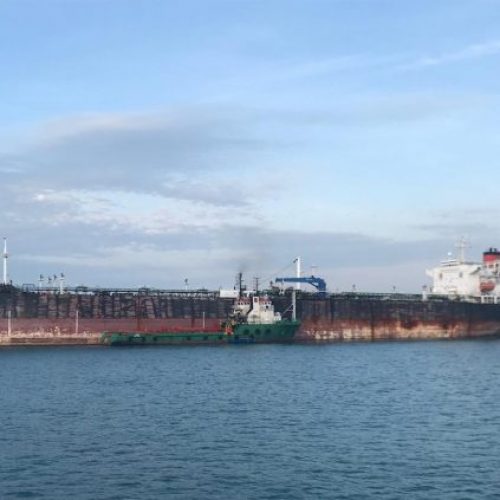
Press Release – NGOs urge Bangladesh authorities to halt the import of a highly toxic offshore unit that illegally departed from Indonesia
The tanker has more than 1500 tons of hazardous waste onboard.
... Read More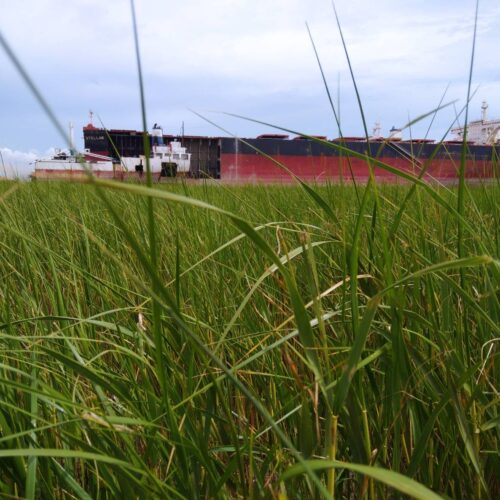
Platform publishes South Asia Quarterly Update #33
Six workers suffered an accident on South Asian beaches in the first quarter of 2023.
... Read More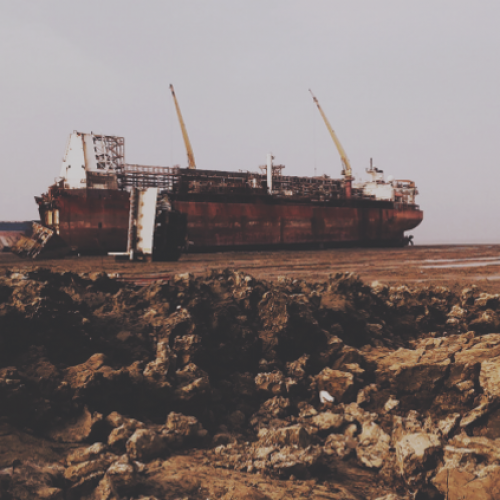
Maersk’s toxic trade: the North Sea Producer case
In August 2016 the FPSO NORTH SEA PRODUCER was beached in Chittagong, Bangladesh. The ship was allowed to leave the UK based on false claims that it… Read More
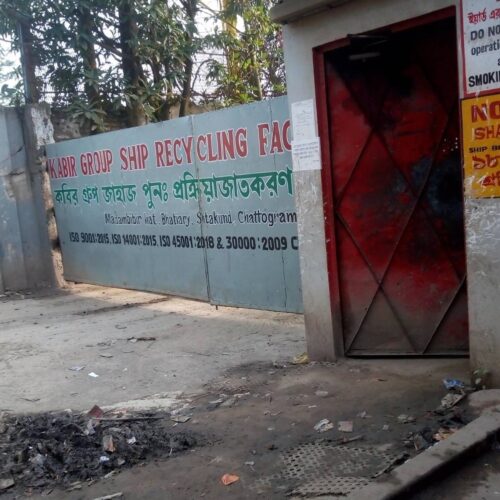
Press Release – Surge of accidents at yards owned by Kabir Group in Bangladesh
Since the beginning of 2022, out of the eighteen accidents that shook the Bangladeshi shipbreaking industry, six have taken place at yards owned by Kabir Steel Re-Rolling Mills (KSRM).
... Read More
Platform News – Greenpeace regrets beaching of Rongdhonu (ex Rainbow Warrior II)
The NGO Shipbreaking Platform regrets that the Rongdhonu, former Greenpeace Rainbow Warrior II, has been sold for scrapping on the beaches of Chittagong, Bangladesh. Greenpeace International had… Read More



